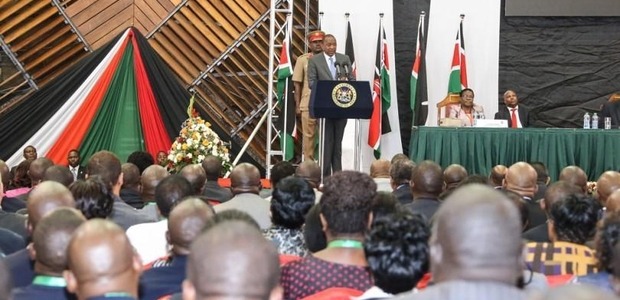advertisement
Government agencies have a week to move to e-Procurement platform
President Uhuru Kenyatta has said all government agencies have just one week to move to the e-procurement platform. The IFMIS…

President Uhuru Kenyatta has said all government agencies have just one week to move to the e-procurement platform.
The IFMIS Department, National Treasury launched the electronic procurement (e-Procurement) last year with the aim of promoting openness and accountability in the use of public money, thereby easing the cost of doing business.
The president said this during the launch of Kenya’s Integrated Population Registration System (IPRS), informing agencies that are yet to move to the platform will be in hot water, so to speak.
advertisement
“Anybody who has not moved to them e-procurement platform within the remaining week will be held individually accountable.” said His Excellency president Uhuru Kenyatta.
E-Procurement is an automated business process which includes procurement planning, management of suppliers, requisitions, quotations, contracts and receipts will be shifted to a more effective and cost efficient online transaction.
The shift from manual to e- procurement will enhance transparency and credibility in the management of public finances and tendering process through the Integrated Financial Management Information System (IFMIS).
advertisement
The system which enables monitoring of all transactions during the procurement process provides functionalities such as the approval hierarchy, which is an end to end process that facilitates the procurement process from planning to payment.
The e-procurement system automates the whole procurement process from requisition, tendering, awarding and payment. E-procurement will do away with middlemen who inflate the prices of goods and services.
Previously, Government entities have managed fragmented banking arrangements obscuring the government’s visibility of real time resources that is useful for decision making.
advertisement
As a result, financial resources may lie idle for extended periods in numerous bank accounts held by spending units while the government continues to borrow to execute its budget.
The online system has the P2P Component which has equally automated the tendering process, introducing a portal for registration of suppliers, classification of the goods and services they offer, qualification of the suppliers, and incorporating the 30% procurement budget for women, youth and persons with disability.
The system also has the iSupplier Portal which has been designed to facilitate efficient collaboration with suppliers by granting them access to view information about their orders and payments, such as open orders and invoice statuses, to submit address or contact changes, and to respond to tenders.